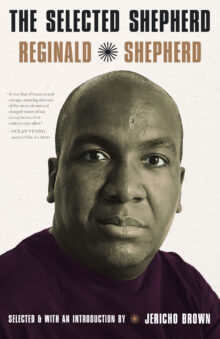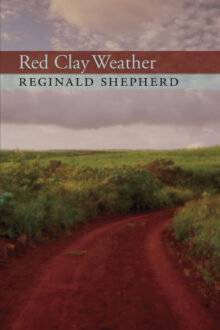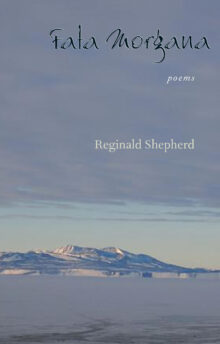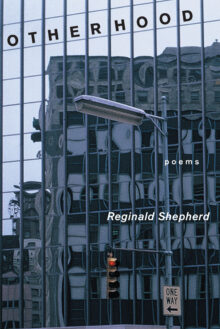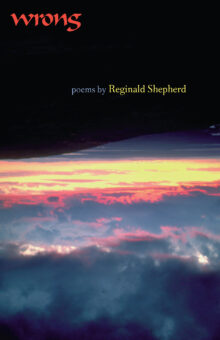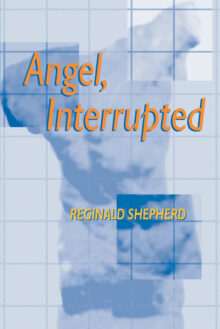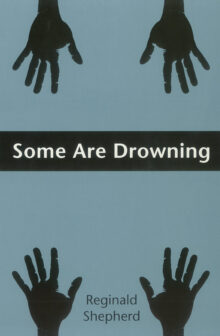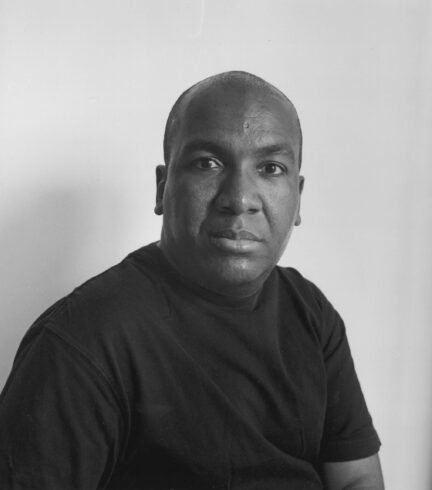
Reginald Shepherd
Reginald Shepherd (1963–2008) was a Black, gay poet who grew up in the Bronx and went on to receive two MFAs, one from Brown University and one from the Iowa Writers Workshop. He authored two collections of poetry criticism and six poetry collections, all published by the University of Pittsburgh Press: Red Clay Weather, Fata Morgana, Otherhood, Wrong, Angel, Interrupted, and Some Are Drowning. His work has been widely awarded and anthologized and has appeared in four editions of The Best American Poetry and two Pushcart Prize anthologies. Shepherd received many awards and honors over his career, including grants from the National Endowment for the Arts and the Guggenheim Foundation, among others.
The Selected Shepherd
Poems
Co-winner, The New York Times Best Poetry Books of 2024
Drawing from all six of his collections, The Selected Shepherd offers a new retrospective on the work of an important and sometimes controversial Black, gay poet. Although well known for his erotic poems about white men, Shepherd also wrote consistently about the natural world and its endangerment and his grief over his mother’s death. Presented in both publication order and the order in which they originally appeared within each collection, these poems highlight the most important themes of Shepherd’s work, along with both his predictability and unpredictability as a poet. Jericho Brown’s introduction provides additional context and insight on the life and work of this complex, groundbreaking figure in American poetry.
Red Clay Weather
“Among other things, Shepherd has always been an elemental poet. His work abounds with the imagery and motifs of water and fire, and while those elements are important here, it is air and earth that are the more dominant elements in this collection. . . .
Clay, red clay in particular, recurs several times throughout the collection as a motif of earth. It is the substance of creation, but always of impermanent things, whether heroes or Babylonian statues with feet of clay, or of things durable but fragile, such as the cuneiform tablets of ‘A Parking Lot Just Outside the Ruins of Babylon.’”
—Robert Philen, from the Foreword
Fata Morgana
Fata Morgana mingles personal experience, history, mythology, politics, and natural science to explore the relationships of conception and perception, the self finding its way through a physical and social world not of its own making, but changing the world by its presence.
Otherhood
Poems
Written in the spaces between otherness and brotherhood, Otherhood combines traditional lyricism with experimentalism, passionate engagement with cold-eyed investigation, and personal details with a depersonalized distance to create a new poetic synthesis.
Wrong
The poems of Reginald Shepherd’s third book move among, mix, and manufacture stories, seeking to redefine the meaning of mythology. From the ruined representatives of Greek divinity (broken statues and fragmented stories), and the dazzling extravagances of predecessors like Hart Crane and Wallace Stevens, to the fleeting promises of popular music and the laconic demigods of the contemporary gay subculture, they sketch maps of a world in which desire may find a restless home. But desire leads the maps astray and maps mislead desire. The poems poems both enact language’s powers to create a world and enforce the world’s insistence (material, social, sexual, racial, historical) that mind (and body) surrender to circumstance. The struggle between these two halves that will never make a whole produces new myths of occasion, “packing the rifts/with sleeplessness, filling the gaps with lack.” In that space between promise and deprivation, Wrong builds its song.
Angel, Interrupted
Angel, Interupted is Reginald Shepherd’s second poetry collection. The poems are lyrical, streetwise and contemporary, yet timeless, classically referential, and introspective.
Some Are Drowning
This first collection of poems enacts the struggle of a young black gay man in his search for identity. Many voices haunt these poems: black and white, male and female, the oppressor’s voice as well as the oppressed. The poet’s aim, finally, is to rescue some portion of the drowned and the drowning.

